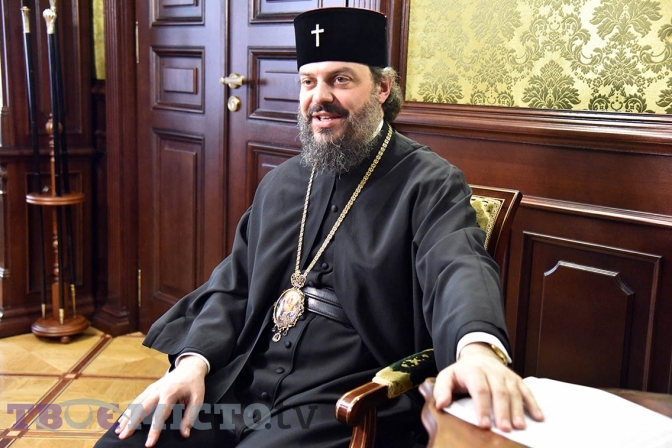
[For urgent updates please follow Ukrainian Freedom News on Telegram]
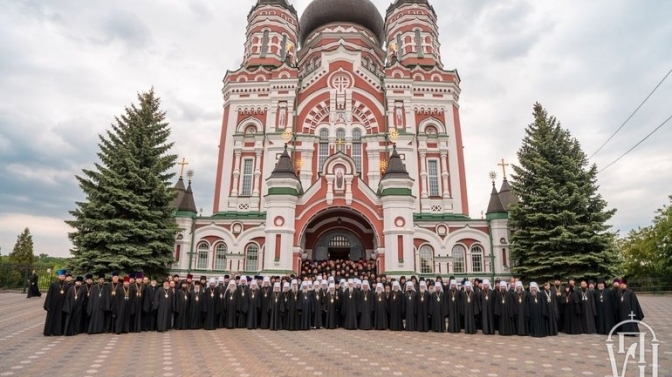
On May 27, the Council of the Ukrainian Orthodox Church of the Moscow Patriarchate (UOC (MP)) in Kyiv declared independence from the Russian Church, so the UOC has already de jure got rid of the MP annex. However, the new (amended) Statute has not yet been published. Many religious experts were ambivalent about the event. Some have called it a kind of game to avoid responsibility. Lviv Now asked Metropolitan of Lviv and Halych Filaret (Kucherov) whether they managed to break off relations with Moscow and Kirill and what is happening now with their parishes in the Lviv region.
What did the Council decide?
Bishop, please tell us about the proclamation of autocephaly by the Moscow Patriarchate. How was it and how did you decide on this step?
Christ is Risen! There was a Council which took place in Kyiv and made certain decisions to change the Statute. Many people do not understand what happened, but in fact, the Council decided to reaffirm its independence, which was granted by the Tomos in 1990, and through changes in the Statute declared its independence.
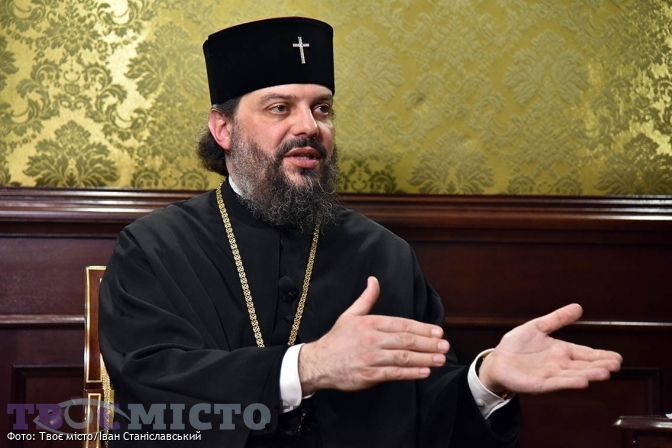
[Tomos – decree of the head of the local Orthodox Church on some important issues of church organization, when some part of the «mother» Church is officially proclaimed autonomy in government or autocephaly. October 27, 1990 Patriarch Alexy of Moscow gave the Ukrainian Orthodox Church a certificate of «widened autonomy» Ed.]
But this is not autocephaly [autocephaly is the status of the local Church as a self-governing, independent part of the Ecumenical Orthodox Church, headed by a patriarch, archbishop, metropolitan – Ed.], because it is often said that the UOC proclaimed autocephaly.
We did not proclaim it because autocephaly is a complex process. This is a difficult path for the independence of the Church. We believed that this status, which we proclaim through the amendment of the Statute, on our independence and self-government, will be further accepted by both the state and the Churches in Ukraine – that the UOC is truly independent.
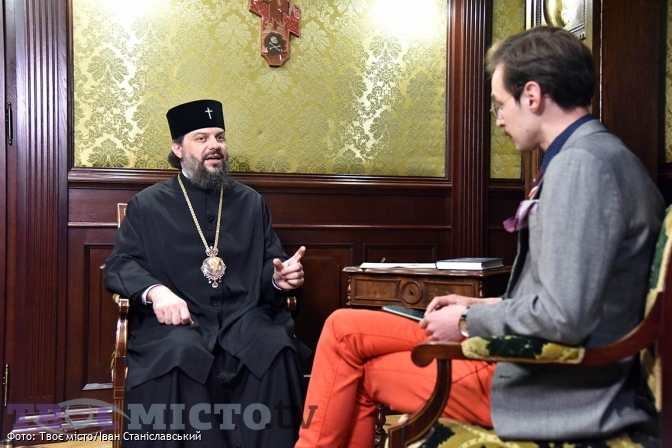
Now, there are phrases that Moscow must approve our decision. But what decision must be made by the structure from which we separated? We decided to sever relations with the Moscow Patriarchate. So how can it then approve this decision if this decision is directed against this structure?
How was this decision perceived in Moscow in general?
We do not know the real opinion and position of the Russian Church, probably because they do not know our real position. It is said that we allegedly covered ourselves with this decision and amended the Statute so that the state authorities and some radical groups that oppose the UOC would not touch us.
In fact, this is not the case. We have really decided on an independent path of our existence. This decision was made on the basis of appeals to His Beatitude [Metropolitan of Kyiv Onufriy – Ed.] During the last three months, bishops, priests, and laity have addressed him with certain proposals for separation from the Russian Orthodox Church. This Statute on the Administration of the Ukrainian Orthodox Church is our canonical Statute, which governs the Church.
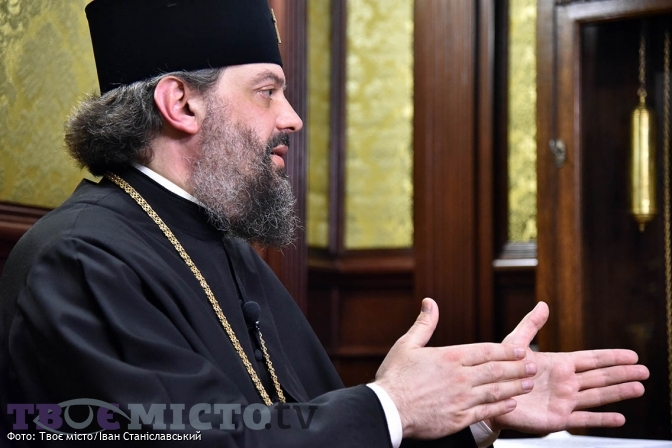
Read also: The remnants of the Moscow patriarchate in Ukraine renounce Russia. Priests’ appeal
But now we need a state reception, ratification. Probably, from the Ministry of Culture as the governing body in charge of state policy in the field of religion and culture. As far as I know, His Beatitude Metropolitan Onufriy addressed letters to the President, the Government, the Parliament, and other state bodies about what happened at the Council.
Yesterday, I also sent letters to the head of the Lviv Military Administration, the mayor, police chiefs, and the Security Service of Ukraine.
Tell us more about the Council, how it went? Was there unanimity among those who took part, or were there bishops who opposed it?
The Council of the Church is the voice of the Church. When the Holy Synod decided to convene the All-Ukrainian Church Assembly – bishops, priests, monks, it was not clear what decision will be made on it, whether it has canonical status [Holy Synod – the third governing body of the organization after the Council and the Council of Bishops. Convened in breaks between the latter at least four times a year – Ed.]
But the Church was ready for us to convene a Council. Especially since there was a request from a large number of bishops and clergy to convene the Council of Bishops and the Council of the Ukrainian Orthodox Church.
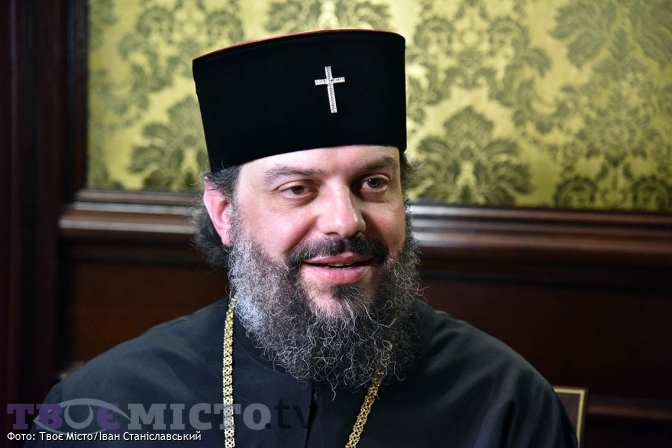
The cathedral met in Theophania, in the monastery of Panteleimon. It all started with the Divine Liturgy, after which during breakfast, there were discussions between bishops and priests, lay people who took part in the liturgy. It was nice when His Beatitude announced that there would be no regulation, no restriction in expressing his position, but, of course, we had to follow certain internal regulations, because many people wanted to speak. This discussion lasted until noon.
The discussion was different – both cool and hot, but it was cultural, restrained, from the standpoint of brotherly love, mutual respect. In the first part of this meeting, 60 speakers help speeches, and it can be said that most of them expressed their opinion on the independence of the Church. But there was also a group of Speakers, who spoke in favour of unity with the Russian Church, although some spoke of the importance of independence in the canonical way: if it is donated by the Moscow Patriarch.
This ended the discussion, and then His Beatitude addressed the participants of the meeting and at the request of bishops, priests and laity proposed to convene the Council of Bishops of the UOC and the Council of the UOC, and signed an act.
After the meal, which took place in the monastery, we continued our working discussion within the Council of Bishops, the Holy Synod and the Local Council of the Church.
Can you tell us about the radical changes that have been made to the Charter and when it will be published?
I can’t say when it will be published, because this is the working position of the Kyiv metropolitanate. The fact is that the Church has a different tradition, the Church may not publish its decisions, but may express its position in press releases, as all local Churches do. The Statute of the Church does not pay attention to this and does not insist that all decisions be published and come into force after publication. The church decision comes into force after its adoption and signing. That is, as soon as His Beatitude signs the decision of the Council, it enters into force immediately.
And what about radical changes?
We took each point separately, and then the document as a whole. The vote on the Statute was unanimous, there were no differing views or contradictions.
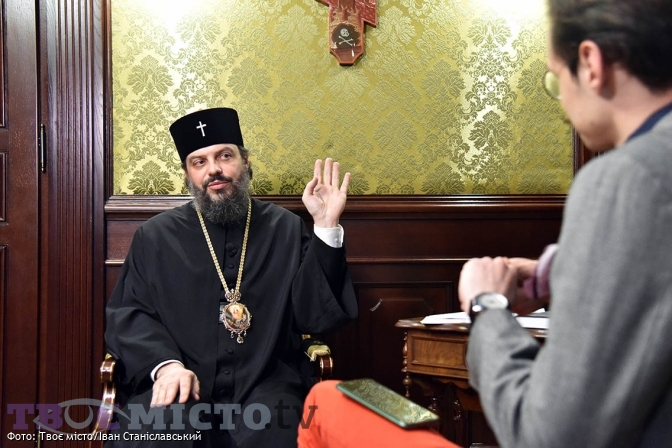
The first point of the general provisions – «The Ukrainian Orthodox Church is independent and autonomous in its management and structure» – this was in our Statute, and this point has not changed. The only thing that was added: «according to the letter of Patriarch Alexy of Moscow and All Russia in October 1990», which the Patriarch gives the Kyiv metropolitanate, the exarchate of the Russian Orthodox Church, the right to be the Ukrainian Orthodox Church, full in its management and independent.
The Patriarch also sent an appeal to the Minister of Justice attached to this letter, in which he clearly stated his position that from now on the Ukrainian Orthodox Church has no relations with the Russian Orthodox Church.
We have also completely removed the item «Ukrainian Orthodox Church connected with local Orthodox Churches through the Russian Orthodox Church» from the statute.
The following item was also removed: «The Ukrainian Orthodox Church carries out its saving activities on the basis of the Holy Scriptures, Holy Tradition, strictly adhering to the dogmas of the Orthodox faith, sacred canons and in its management is guided by the decisions of the Council of Bishops of the Russian Orthodox Church in 1990.»
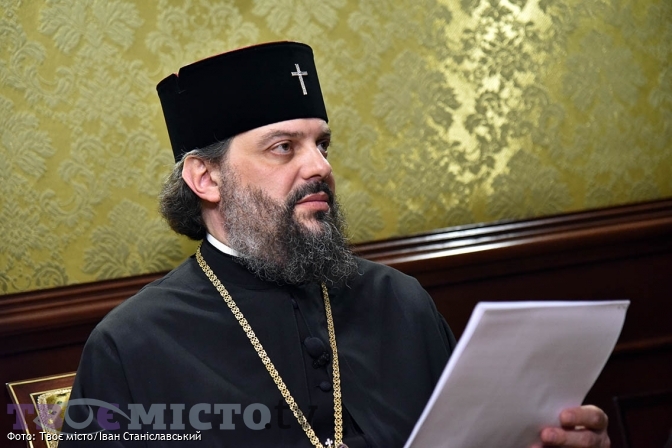
The section on the Council of the Ukrainian Orthodox Church states that the preservation of canonical unity of the UOC is preserved with all Orthodox Churches. And before that, it was «in unity with the Russian Orthodox Church and with all the local Orthodox Churches.» That is, the canonical unity of the Russian Orthodox Church (ROC) is removed from the Statute.
Supervision over the implementation of all Local Council’s decisions of the UOC was entrusted to the Local Council of the ROC. From this point, we have taken away the reference to the Local Council of the ROC and say: «supervision over the implementation of all decisions of the UOC Councils and the Statute adopted by them», i.e. we literally refer to our decisions.
Also in the section «The Council of Bishops operates on the basis of the sacred canons of the Churches…» we remove from the text «local and hierarchical councils of the ROC» and leave that the Council of Bishops operates on the basis of canons of the Church and resolutions of UOC Councils.
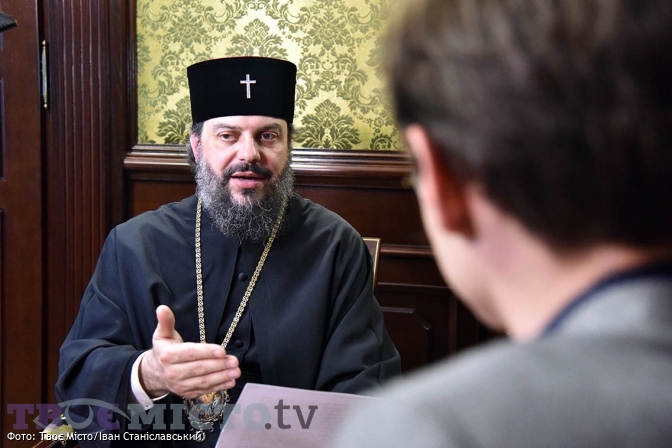
An important point in further changes is that which concerns the head of the Church. In the old Statute, there was a position that the head of the UOC was elected for life and that he was blessed by His Holiness the Patriarch of Moscow and All Russia. We remove this blessing from the Statute and say that the Primate is elected for life by the UOC episcopate – that’s all, dot. No one blesses him. He takes office after his election.
It was also stated in the Statute that the name of His Beatitude is raised after the name of His Holiness the Patriarch. You have seen that during the war, there was a lot of controversy over the mention of the patriarch during worship services. Many dioceses and churches have abandoned this, and now this decision has been removed from the Statute of our Church.
One of the most important decisions is that the head of the UOC was a member of the Holy Synod of the ROC. This item was also removed from the Statute. There will no longer be a single representative of Ukraine in the ROC who would make decisions in the governing bodies of the Church.
Similarly, in the new format of the Statute, it will no longer be necessary for the head of our Church to receive the diploma of the Patriarch of Moscow after his election.
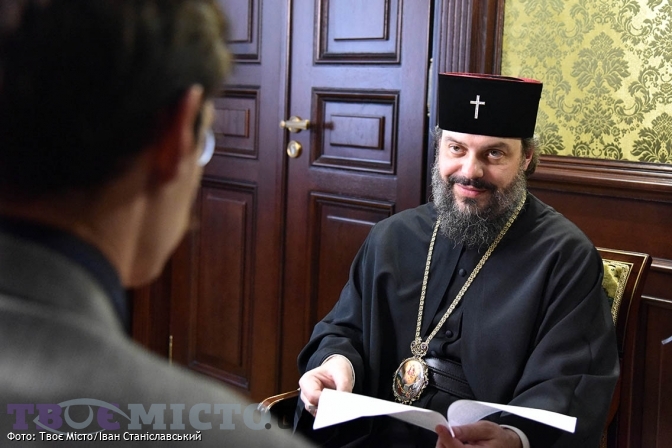
These are all decisions concerning the administration of the Church. There is no point in talking about the rest, because the structure of the Church remains unchanged.
That is, we decided to declare independence from the Russian Orthodox Church. Henceforth, UOC bishops are not members of the ROC Council of Bishops, are not members of the ROC Local Council, and His Beatitude is not a member of the ROC Synod. He is elected by the episcopate of our Church, and he receives neither a blessing nor a patriarchal charter.
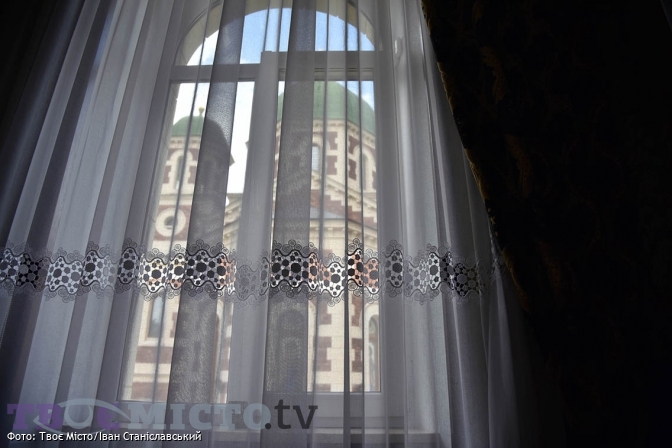
Because You are the Metropolitan of Lviv and Halych, tell us how many parishes in the Lviv region are now under your control and how many have moved to the PCU (Orthodox Church of Ukraine – a former Ukrainian Orthodox Church of Kyiv Patriarchate, reformed in 2019 after receiving Tomos (autocephaly) from the Constantinople Patriarch – Ed)?
The religious sphere is a very delicate organism. Historically, the Churches cannot keep up with state and political views so quickly. Our Church is quite conservative, the whole society sees it. But she is still moving forward. There is a certain evolution. Even these decisions of His Beatitude on the first day of the war, when he called the war by its name and condemned the aggression of the Russian Federation, appealed to the President of the Russian Federation to stop the war, withdraw troops, is the inner growth of the Primate, who realized the pain of his people.
The religious question in general is very sensitive. Whenever there was talk of interfaith relations, there was some tension. The best time for interfaith regulation was the presidency of Leonid Kuchma, who, on the eve of the celebration of the 2000th anniversary of the Baptism of Russia, invited all the primates and asked to relieve this interfaith tension. And the superiors listened to him. Insults have disappeared from the Internet, and denominations have begun to live normal, quiet lives. No one seized temples, no land was allocated for church construction, and the state offered equal support to the Church. Politics then entered the Church and destroyed these relations. So for the last eight years, we have had a church-political confrontation.
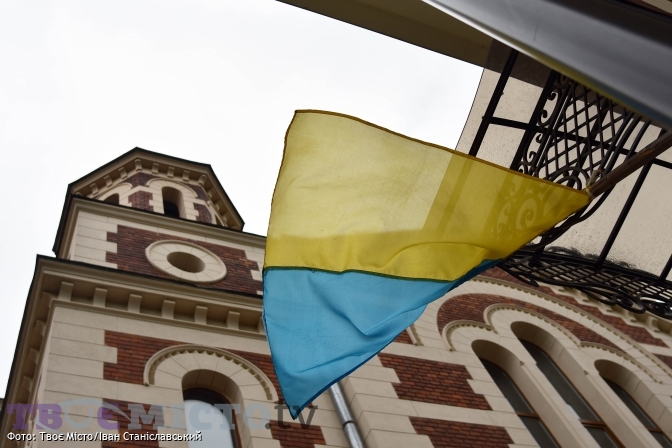
The current war has shown our active participation in the life of society, support of the army. We collected food, money, medicine, received and are accepting refugees. Immigrant families are now in our cathedral.
It is important to understand that the Church can live well if she is supported. Unfortunately, this destructive fact, which is present today in our country, particularly in the West, exists. How is it displayed? In the rapture of the temples. We must clearly separate the notion of «community transition», as it was before – to the Kyiv Patriarchate or later – to the PCU, and «community capture».
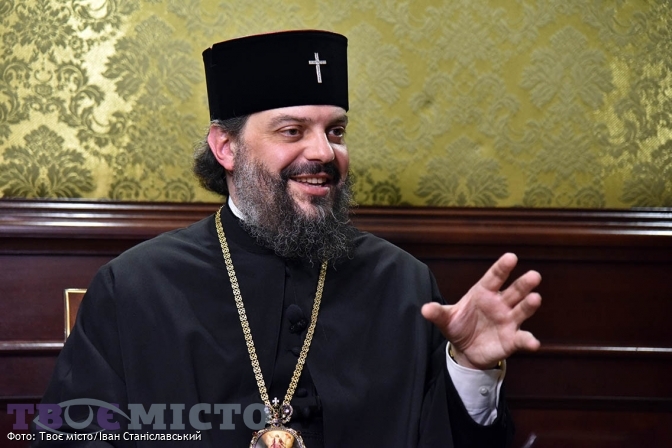
On May 26, Metropolitan Filaret of Lviv and Halych posted on his Facebook page an open appeal to the head of the Lviv Military Administration, Maksym Kozytskyi, police chiefs and the SBU of Lviv Region alleging that the rights of believers, clergy and religious communities of the Lviv UOC diocese were violated in some districts. As the UOC-MP in Horodok, Stryi, Boryslav and Chervonohrad has already been banned in the Lviv region, some communities have converted to the local Orthodox Church on their own.
In response, the head of the Lviv Military State Administration, Maksym Kozytskyi, called on law enforcement agencies to find out whether such facts really took place and whether the law was violated. At the same time, he stressed that Metropolitan Filaret (Kucherov) must understand and take into account the public mood that Ukrainians have every right to raise the question of the existence of religious organizations in Ukraine, whose headquarters are in the aggressor country, that waged war against us and killed tens of thousands of civilians. He reminded that no community of the Lviv Eparchy of the UOC (MP) has complied with the Law of Ukraine of 20.12.2018 № 2662-VIII on renaming Churches whose centers are in the territory of the aggressor country, and therefore their statutes have expired.
There used to be the Kyiv Patriarchate, and the decision to move to the Kyiv Patriarchate was made by the religious community, the parish. Adopted the same amendments to the Statute of another subordination, voted, unanimously supported and passed. The community of the village or town had nothing to do with the religious community that is the founder. The founders of the parish are not the village – one thousand or two thousand people, but two hundred people who are parishioners of this church.
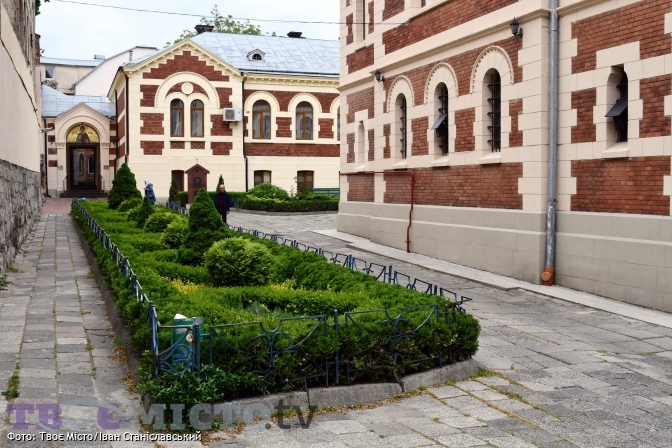
They have established a religious community and they decide whether to go or not. This is the right step, both legally and canonically, when the community makes decisions. During the first wave of the transition of parishes after the tomos provided by the PCU, we had such communities that came to me and said: «Bishop, we want to move to the PCU.» Make a decision – if you do it in a canonical way without outsiders, then you make this decision without pressure and consciously. There were communities that held meetings on Sundays, closed churches, and unanimously, with the exception of two, three, or five families, decided to move to the PCU.
There was another way – when communities captured. For example, the community of our church was not allowed into the church on Sunday. The gate was closed, a group of PCU priests entered the territory and began worship with a small number of people. The community withdrew from the temple building and continued their ministry in the priest’s house. There are five or seven people left in the church, and 100-150 in the priest’s house. I consider it a raider capture.
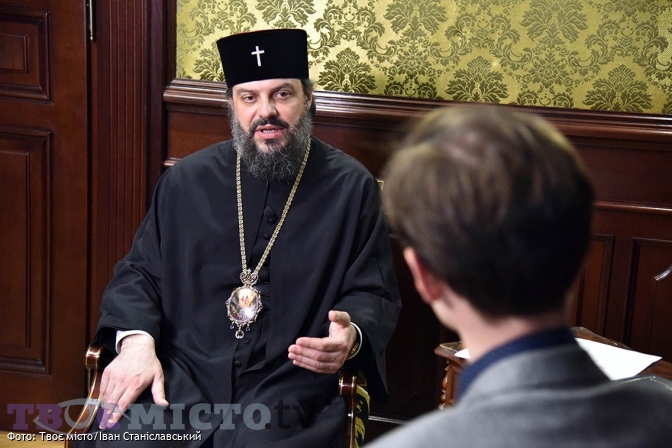
In Drohobych, the church of St. Job of Pochaiv on the street Truskavetska, 56, which belonged to the Moscow Patriarchate, officially joined the Orthodox Church of Ukraine. The corresponding decision was made in Drohobych City Council on May 25. The rector of the church, Mykola Mandziuk, continued to work despite earlier requests from parishioners to transfer to the PCU. After that, the «bare» walls of the church of St. Job of Pochaiv remained: there were no fragments of the iconostasis, most of the icons and church attributes were taken out.
There is another option: when the government decides to re-register the community, and the community as the owner of its property, its temple building learns about its re-registration, that last week it allegedly decided to join the PCU and learned about it from the state register. There were no meetings, no reports, and suddenly the community came to church on Sunday, as was the case in Drohobych. We do not understand with whose support it is organized: the locks on the doors are broken, the priest of the PCU comes to pray with the authorities… Maybe it’s territorial defense, and maybe some political parties have taken on this responsibility. And the community remained outside the gate, behind the block, it was not allowed.
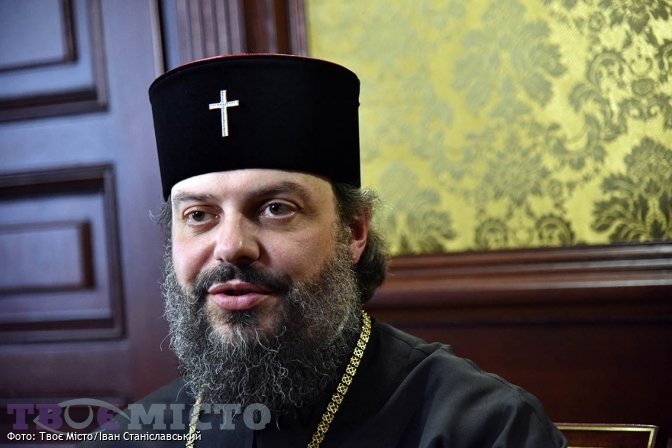
I believe that this is a destructive impact on the life of the Church. If we continue to do so, there will be no unity, no dialogue. The question must be clearly asked: to seize two or three communities or to put pressure on the priest.
I remember when the local authorities in the district, in the city, in the village began to put pressure on the priest to transfer to the PCU. There were also such transitions when the priest left the community and left. The community moved, but fell apart, split in two – some people remained in our Church, and some moved to the PCU. This is the division of the community, enmity.
So how many parishes of the UOC are there in the Lviv region now?
Prior to the war in the Donbas, the Lviv diocese had 70 parishes. We have experienced two waves of transition to the Kyiv Patriarchy and the PCU. With the beginning of the war, there was the first wave, the second wave – after the granting of the Tomos to the PCU, now the third wave continues, when communities decide to move to the PCU.
But there are communities that still decided not to join the PCU. They left our structure, decided at the meeting to leave the Lviv Eparchy of the Ukrainian Orthodox Church, and decided that they wanted to have direct subordination to the Patriarchate of Constantinople, asking him to do so.
I know that these requests have been accepted, but I do not know if there is already an answer to these priests, because they have come out of my control. As a rule, at the eparchial council, we decide that the community and the priest had left the jurisdiction of the Lviv eparchy of the Ukrainian Orthodox Church, and we delete this parish from our diptychs, and the priest leaves the staff.
We now have 25 parishes.
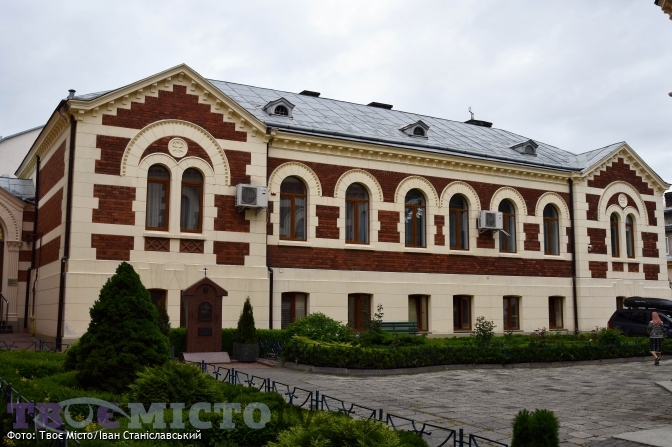
What about dialogue with other Churches, including the PCU?
Dialogue is the inner vision of the Church, it is not a decision of the Council of Bishops or the Local Council of the Church. We have always had a dialogue, especially with other Churches. We always meet with all the heads, hierarchs of Churches and religious organizations to resolve church-state, public-state issues, communication with each other. We take part in state events, pray for well-being and health. For example, on the City Day, when hierarchs, of different denominations gather and everyone has their own turn, who reads what prayer. We always read a prayer for the repose of the founding princes of Lviv, our contemporaries who were here in power.
But the question is very difficult, because we have not declared ourselves an autocephalous Church. We are the Church of our own right, an independent, sovereign Church. There have been cases in history when the Churches were independent. They were not autocephalous, they did not obey anyone, but the names of their superiors were mentioned in the diptych of the local Churches.
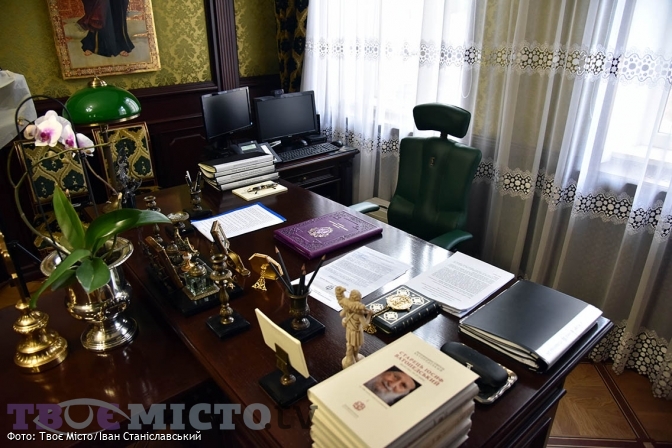
Should we expect integration with the PCU, unification into a single structure called the Ukrainian Orthodox Church or the Orthodox Church of Ukraine?
You know, the gospel tradition is a tradition of unity and love. We pray at every Divine Liturgy for the unity of all Christians in the world. Of course, this is an ideal model if we, all Christians, were united in Christ in a single conciliar Church, at least within the tradition of the first millennium – before the division of the Church. This is the goal and aspiration of every Christian, every hierarch, priest, layman, who understands the Church of Christ not as a structure, a vertical of power, but as the Body of Christ, so we must not divide but unite around him.
As for the dialogue with the local Churches, the dialogue with the PCU, of course, this step is more of a legal sphere, which will go from legal to canonical. But this must be preceded by certain moral principles.
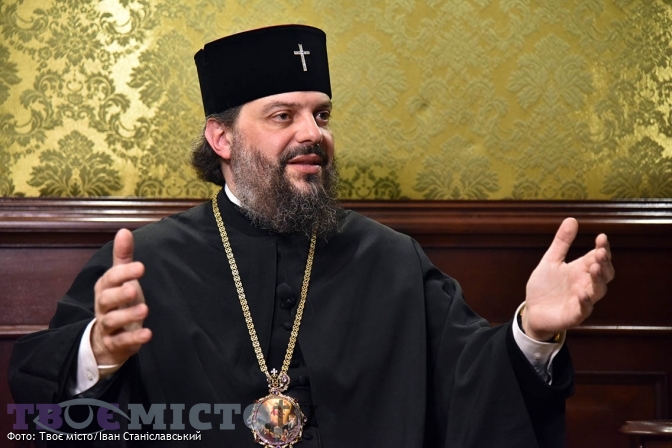
Yes, it is a long way, but it is a way of peace and love. Our main goal should not be structure. It is not so important that we talk about the unification of the UOC and the PCU. We must talk about the unity of Orthodoxy as such, as a whole institution, as a whole Church.
So that no one has doubts, ambiguity, tell me, is there a civil war in Ukraine, a «special operation» of Russia or a Russian-Ukrainian war?
You know, I am probably the first bishop of the UOC to call everyone by their names. After the annexation of Crimea, I turned to the President of Russia with the appeal to stop the annexation and withdraw your troops from there. On the first day of the aggression in Donbas, I called this aggression Russia’s war against Ukraine. At a time when the shelling had just begun, when there was no war, one could say that a special operation was taking place.
But when people die, infrastructure is destroyed all over Ukraine, we see not just a terrible, but a treacherous war, genocide against the Ukrainian people and against our sacred land.
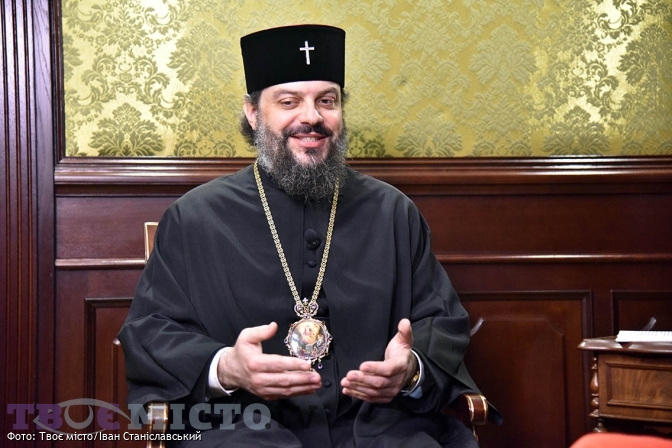
If we say that we are building a new Church, we must help to follow this new path and finally unite the whole Ukrainian society. And may the Lord help us in this!
By Roman Tyshchenko-Lamanskyi, translated by Vitalii Holich
Photo: Ivan Stanislavsky / Your city
Full or partial publication of the text without the written consent of the editors is prohibited and is considered copyright infringement.
Follow us on Facebook and Instagram. Lviv Now is an English-language website for Lviv, Ukraine’s «tech-friendly cultural hub.» It is produced by Tvoe Misto («Your City») media-hub, which also hosts regular problem-solving public forums to benefit the city and its people.








